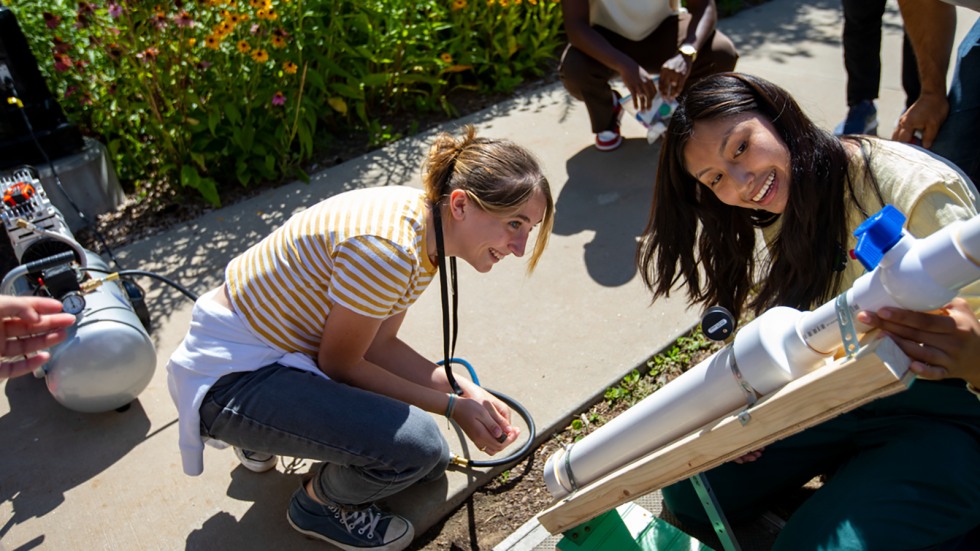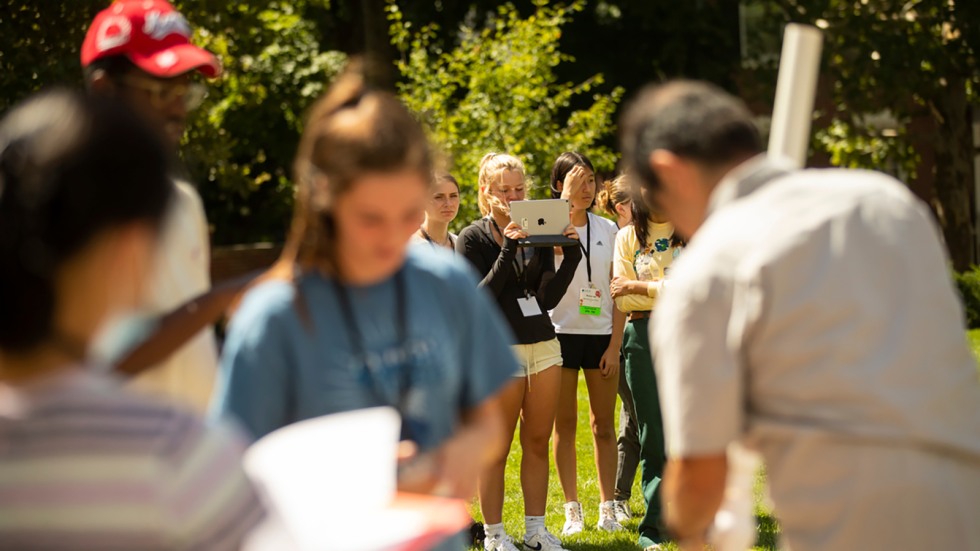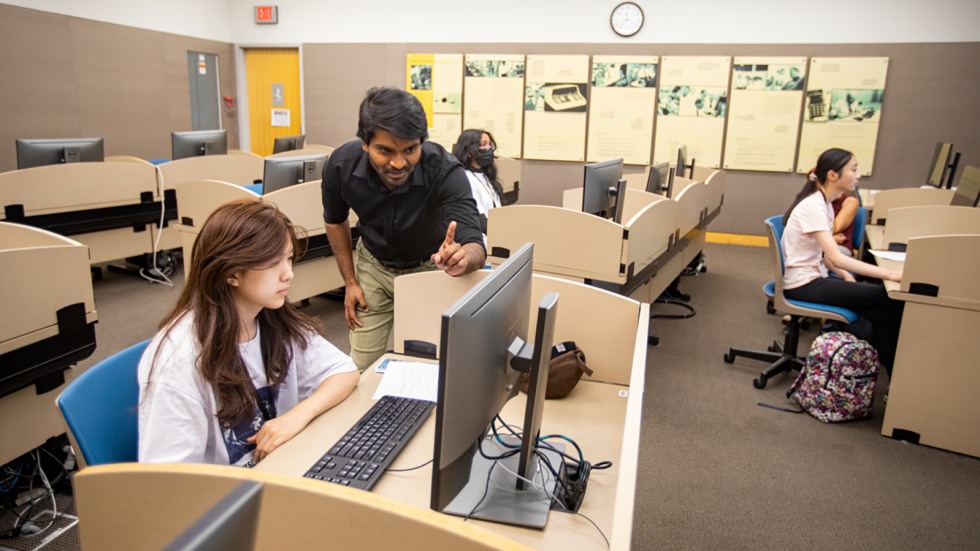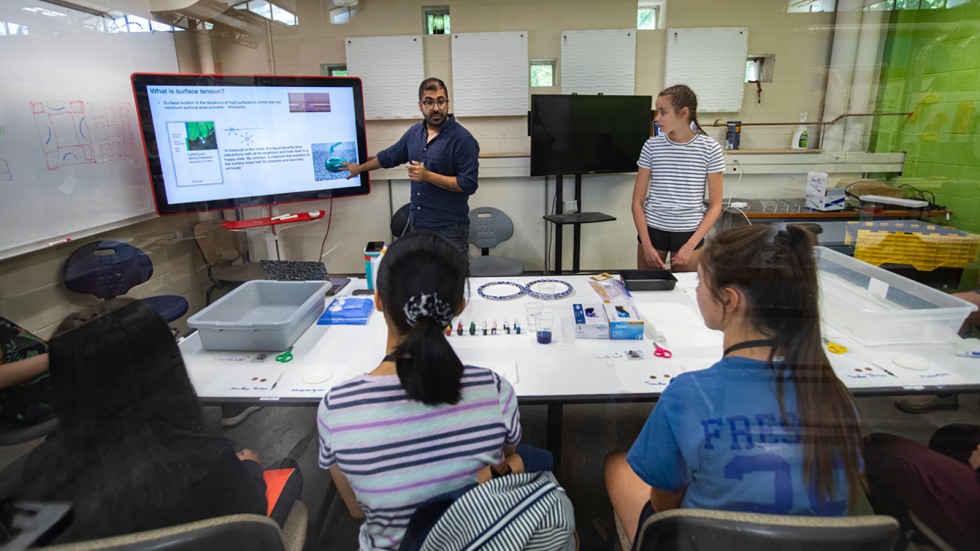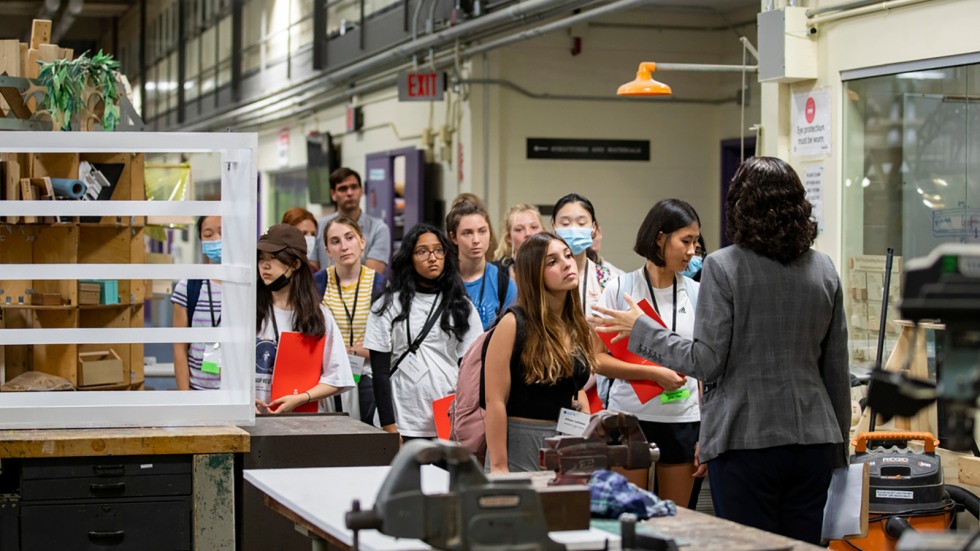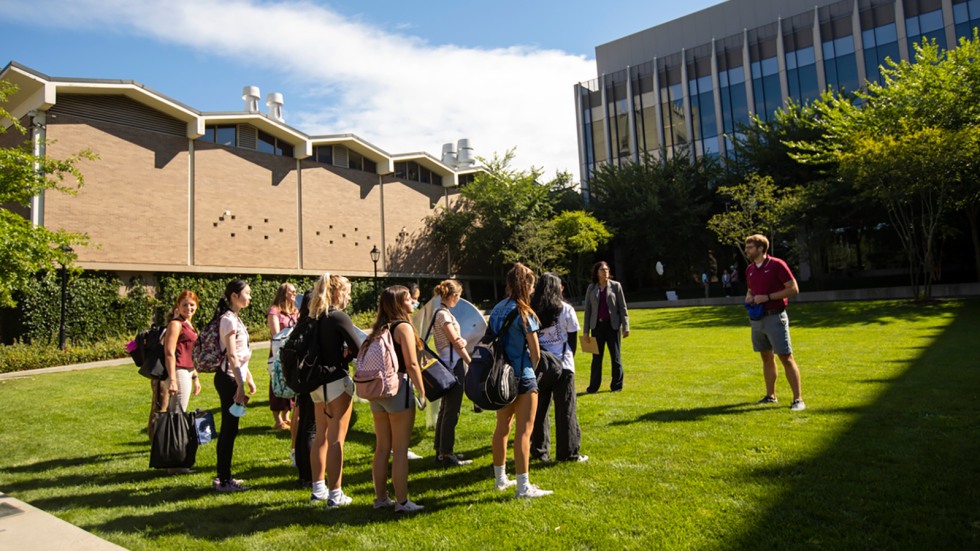PROVIDENCE, R.I. [Brown University] — As a high school student, Abigail Siegel had a natural aptitude for math but had trouble envisioning how she might turn her interest into a career. Fast forward seven years, and today, the young professional is working in cyber security and software engineering.
What inspired her career trajectory? She credits GirlsGetMath@ICERM, a mathematics program for high schoolers held at Brown University each summer. Founded and led by Brown's Institute for Computational and Experimental Research in Mathematics, one of just six federally funded math institutes in the nation, the program’s mission is to cultivate interest, inspire confidence and instill a sense of belonging for girls exploring math and science fields.
"Girls Get Math was the first time I wrote any code," Siegel said. "I had zero exposure to computer science and knew nothing about computers, and I wouldn't have started learning about computer science when I did or at all if it wasn't for Girls Get Math."
That summer, Siegel was one of 25 high school students — rising sophomores and juniors from all over Rhode Island — who came to Providence for the five-day mathematics program. Through hands-on activities, games, interactive lectures and daily computer labs, Girls Get Math encourages students to explore mathematical topics in an open and encouraging setting. The program features a daily theme, covering topics across cryptography, data science, prime numbers, factoring and mathematical modeling. To learn about computer imaging, for example, students studied the math behind the image filters they use every day on Instagram.
